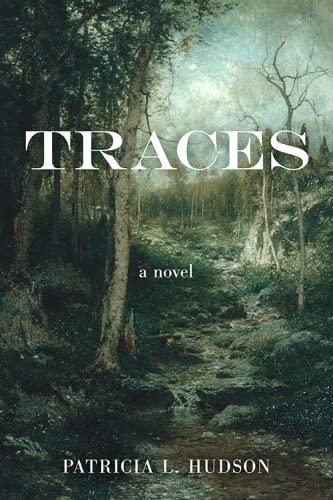Traces
Even in 1750s America, celebrity marriage is a challenge, especially if your husband is Daniel Boone. In Traces, Hudson gives voice to Boone’s wife and two of his daughters, women who were on the frontier, creating a home while Boone left for the woods.
While Traces is about frontier life in the early pre-Revolutionary War era, it’s really about partnership. Boone is gone for long stretches: fur-trapping, joining militias, or scouting new territory to push white colonialism westward. Meanwhile, Rebecca births ten children, deals with scandal, and farms. The attention to detail of Rebecca’s daily life is a drudgery for her, but a delight to the reader. There are few frontier novels that convey the cyclical nature of maintenance and creation when living in the woods. In the latter half of the book, as the children get older, two of Boone’s daughters, Susannah and Jemima, get a perspective. Life for a young Boone woman wasn’t sparkles and ribbons, and between the two girls we see the dichotomy of impetuousness versus careful thought.
Amidst all of the family strife, the rumors that Rebecca slept with Daniel’s brother, and the constant upheaval subject to Daniel’s impulses, there are conflicts with different tribes of Native Americans. Hudson treats them well, distinguishing tribes, modes of dress, and attitudes towards white settlers. She even exposes how Daniel Boone continually pushes boundaries that the governments have settled, and creates enemies by doing so. She isn’t afraid to show that Daniel Boone was a man who sometimes made poor decisions for his own gain.
This book is harrowing—flaming arrows, kidnapping, escaping through the woods with small children. It’s a page-turner, and by the end, you come to respect Rebecca. She was pushed aside by history, but Hudson brings her back for a much-deserved curtain call.










